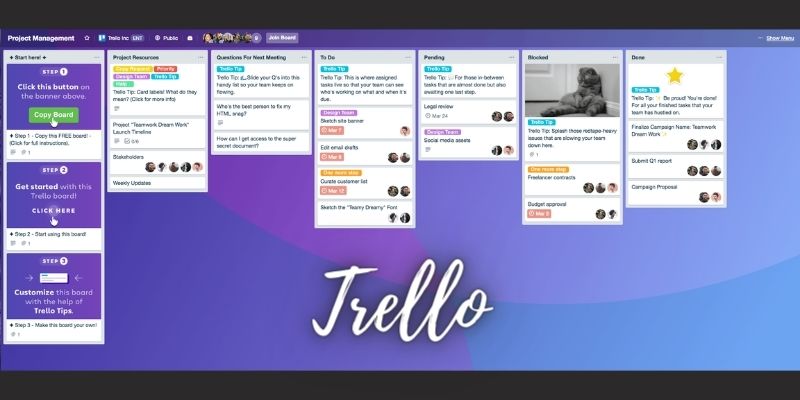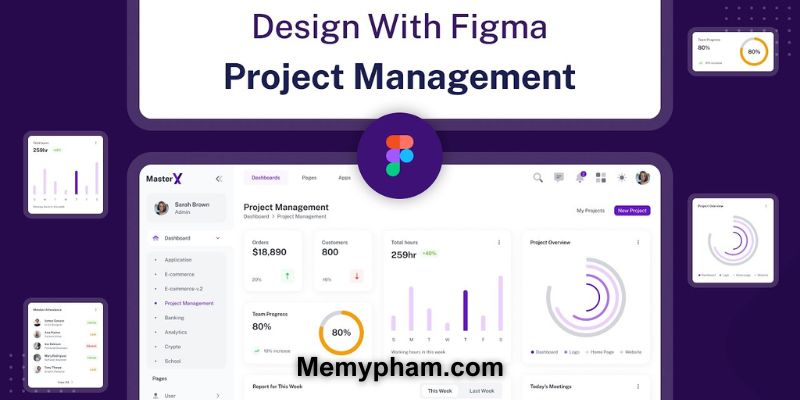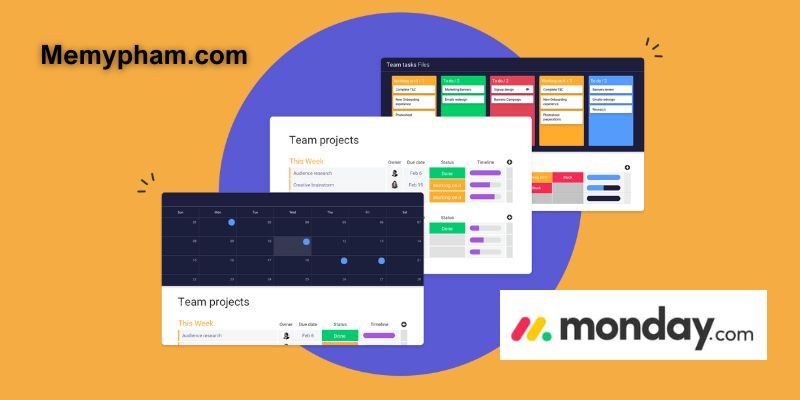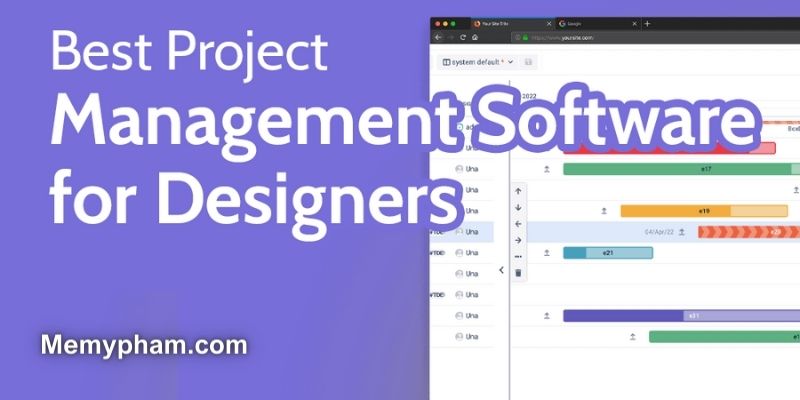In the fast-paced and dynamic world of design, where collaboration, creativity, and efficiency are paramount, having the right tools is crucial. Designers often find themselves juggling numerous tasks, collaborating with team members, and managing project timelines simultaneously. To navigate this complex landscape from Memypham, project management software for designers emerges as a key solution, providing a centralized platform for streamlined workflows and enhanced collaboration.
Project Management Software for Designers
1. Trello: A Visual Canvas for Design Projects
One of the standout players in the realm of project management software for designers is Trello. Renowned for its user-friendly interface, Trello uses boards, lists, and cards to create a visual canvas for project organization. Designers can effortlessly create boards for different projects, with each board housing lists representing project phases and cards corresponding to specific tasks. This visual approach provides a comprehensive overview of the project’s progress, making it an ideal choice for designers seeking clarity and simplicity in their workflows.

2. Asana: Empowering Design Collaboration
Asana is a powerhouse project management software for designers to collaborate seamlessly. With features for task assignment, due date setting, and progress tracking, Asana facilitates effective project management. Designers can create projects, break them down into tasks, and assign responsibilities to team members. Asana’s versatility allows for the integration of design tasks within a broader project framework, making it a valuable asset for design teams working on multifaceted projects.
3. Jira: Agile Project Management for Design Teams
While traditionally associated with software development, Jira’s adaptability makes it a viable option for design project management, especially in larger teams. Jira excels in agile project management, allowing designers to break down projects into smaller, manageable tasks and track progress through sprints. With its robust issue-tracking capabilities, Jira enables detailed project management while fostering collaboration among design team members.
4. Figma: Unifying Design and Collaboration
Figma stands out as a cloud-based design tool that seamlessly integrates project management features. This platform allows designers to create and prototype designs collaboratively while managing project-related tasks within the same environment. Figma’s real-time collaboration capabilities ensure that team members can work simultaneously on design tasks, making it an excellent choice for design projects that demand constant collaboration and iteration.

5. Adobe Creative Cloud Libraries: Asset Management for Designers
Adobe Creative Cloud Libraries, though primarily an asset management tool, plays a crucial role in the project management landscape for designers. Designers can organize and share assets seamlessly across projects, ensuring consistency in design elements. While not a full-fledged project management tool, it complements other software by providing a centralized hub for design assets, enhancing collaboration and efficiency in the design process.
6. InVision: Prototyping and Beyond
InVision goes beyond being just a prototyping tool; it incorporates project management features to streamline design workflows. Designers can create interactive prototypes, gather feedback, and manage project tasks within a single platform. InVision’s focus on user experience and collaboration makes it a valuable asset for design teams aiming to enhance both their design and project management capabilities.
7. Basecamp: Simplicity and Collaboration for Small Teams
For small to medium-sized design teams, Basecamp offers a user-friendly and collaborative project management solution. With features such as to-do lists, file sharing, and communication tools, Basecamp simplifies project management without overwhelming users with unnecessary complexity. It serves as a centralized space for teams to collaborate, making it an excellent choice for designers seeking a straightforward and effective project management solution.
8. Monday.com: Customizable Work Operating System
Monday.com presents itself as a customizable work operating system that adapts to various workflows, including those of design teams. With features for task management, collaboration, and project tracking, Monday.com provides a versatile platform for designers to organize their work. Its adaptability makes it suitable for design teams with diverse project requirements, allowing for a tailored approach to project management.

Choosing the Right Tool
When selecting project management software for designers, considerations should go beyond features. Ease of use, collaboration capabilities, integration with existing tools, and alignment with team workflows are paramount. Some tools offer free trials, allowing designers to experiment and find the software that best suits their team’s specific needs.
Benefits of Project Management Software for Designers
The integration of project management software into the design process brings forth numerous benefits. Designers can achieve improved collaboration, enhanced organization, efficient task tracking, and streamlined communication. These benefits contribute to the overall success of design projects, ensuring they are delivered on time and with the desired level of creativity.
Conclusion: Navigating the Design Landscape with Purposeful Project Management
In the intricate world of design, where creativity meets deadlines, having purposeful project management software for designers is a game-changer. Trello’s visual approach, Asana’s collaboration prowess, and Jira’s agility offer diverse solutions tailored to the unique needs of design projects. Figma’s integration of design and collaboration, Adobe Creative Cloud Libraries’ asset management, and InVision’s focus on prototyping contribute to a holistic approach to project management in the design sphere.
Basecamp’s simplicity caters to smaller teams, while Monday.com’s customizable work operating system ensures adaptability for diverse workflows. As the design landscape continues to evolve, the importance of project management tools designed specifically for designers becomes increasingly evident. These tools not only enhance efficiency and collaboration but also empower designers to focus on what they do best – creating visually stunning and impactful designs. In the ever-evolving world of design, choosing the right project management software for designers is not just a choice; it’s a strategic decision that propels design teams toward success.
